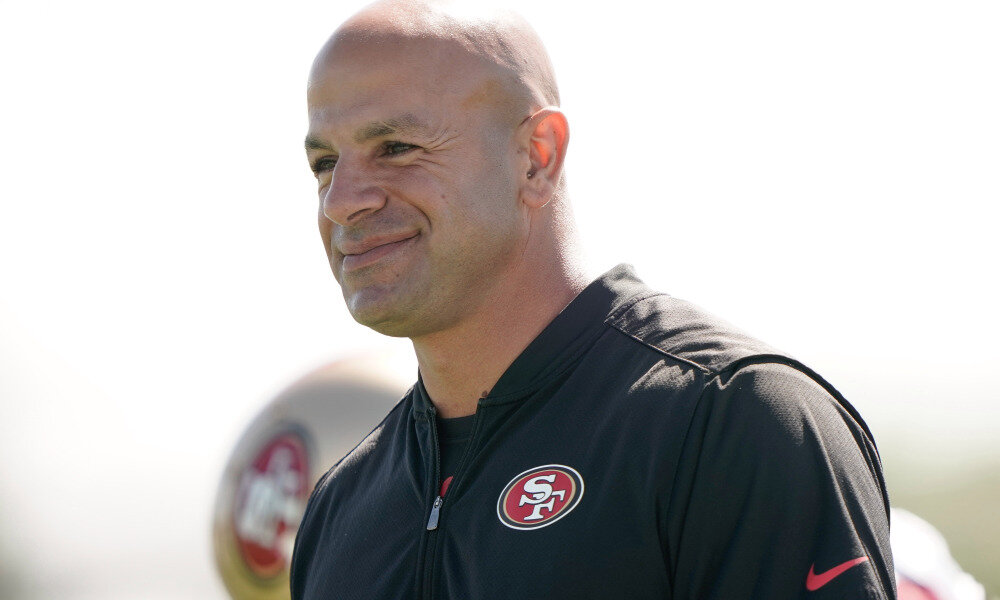Hawzah News Agency - By signing a five-year contract with the New York Jets last week, Robert Saleh etched himself into the history books by becoming the National Football League’s (NFL) first Muslim-American head coach.
The hiring of Saleh, who is of Lebanese background, on a team in the world’s biggest media market, is a landmark moment for a country embroiled in a reckoning around racial justice and a league fraught by a visible lack of diverse organisational appointments.
We've reached an agreement in principle with Robert Saleh to become our head coach.
“We welcome this development as another sign of the increasing inclusion and recognition of American Muslims in our diverse society,” Ibrahim Hopper, spokesman for the Council on American-Islamic Relations (CAIR), said in a statement.
“I think he’s just a trailblazer for a lot of coaches who are Muslim, to let them know that they do have a chance to be a head coach,” said Detroit Lions offensive lineman Oday Aboushi, one of the Muslims players currently in the NFL.
Saleh joins the Jets after spending the last four years as a defensive coordinator for the San Francisco 49ers, which he transformed into one of the NFL's elite units. He is now tasked with overhauling and transforming the Jets, one of the worst teams in the NFL, into a contender under the intense scrutiny that inevitably comes with coaching any franchise in the Big Apple.
And Saleh appears primed for the challenge.
A fiery and charismatic figure, Saleh is known to be a player’s coach and frequently lauded for his leadership skills. Notably bald, his jubilant flexing and celebratory theatrics on the sidelines during games has grown memorable with audiences.
“He’s a leader of men,” Robert Sherman, the star 49ers cornerback, said in a press conference upon Saleh’s departure from the team. Sherman noted he deserved a ton of credit for never making excuses for the injuries the unit suffered the past season and still managing to field a top-5 defense.
A trailblazing path
Son of a construction worker, the 41-year-old Saleh is a native of Dearborn, Michigan, a blue-collar community home to the largest Muslim population per capita in the US. On the margins of Detroit, Dearborn was a place where many Arab refugees who fled war found stability by integrating themselves into the auto industry.
Fordson High School, which Saleh’s attended – with a 95 percent Arab student body – was where his passion for American football was fueled alongside his working-class grit. Abed Ayoub, the legal and policy director for the American Arab Anti-Discrimination Committee, who grew up near Saleh in Dearborn, called him a “natural-born leader” whose “humility is what sets him apart, and what makes him an embodiment of our working-class Arab American community.”
Having stopped playing football after his tenure at Northern Michigan University, he had a comfy job in finance and appeared to have a secure future ahead of him. What then led him to forge a different career path in the NFL occurred on the morning of 9/11.
On that fateful day, David, his older brother, had begun induction for a new job at Morgan Stanley on the 61st floor of the South Tower of the World Trade Center. After hearing the North Tower was hit, David frantically managed to escape the building just as terrorists flew another plane into the South Tower.
It was an event that shook Robert – highlighting the precarity of life and pushing him to leave his credit analyst role at Comerica to chase his passion for football as a coach.
His first break came with the Houston Texans in 2005 as an intern, which subsequently opened the door for further coaching opportunities as he enjoyed stints as an assistant coach in Seattle and Jacksonville before being hired by San Francisco as a defensive coordinator in 2017.
On the heels of last year’s Super Bowl when the 49ers prepared to face off against the Kansas City Chiefs, Saleh spoke to the Washington Post on what his presence meant at the pinnacle of America’s sporting spectacle. He traced his family’s roots back to his immigrant Lebanese grandfather and how that generation laboured on factory assembly floors without being able to advance because of the language barrier.
“For me to have the opportunity to coach, and kind of create another trail, has been good,” he said. “That is pretty cool.”
In the same article, Dawud Walid, executive director of CAIR’s Michigan chapter, highlighted the importance of Saleh’s cultural impact.
“The sports world has perhaps a much larger effect on pop culture than those other avenues of influence,” Walid said.
“So Coach Saleh doing what he does, and his affiliation with the NFL and having a high profile, will have influence, many of us believe, on how a number of Americans will perhaps look at Muslims in a different light.”
While preparing to bring his schematic prowess and larger-than-life presence to revive a once storied New York franchise, Saleh has made Dearborn – and Muslims across America – exceedingly proud.


Your Comment